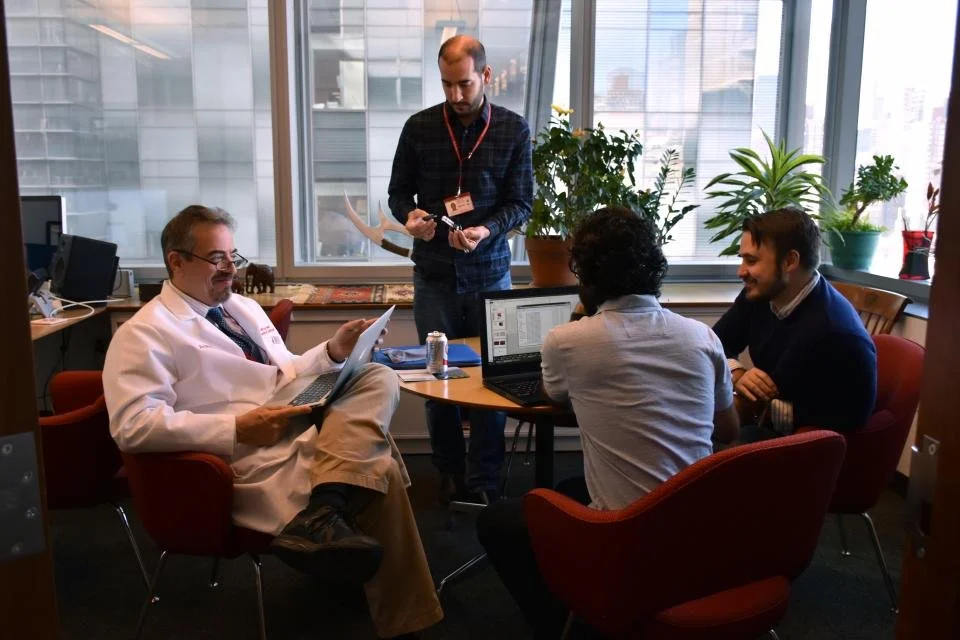Our Research
The Melnick Lab’s Research is focused on hacking the immune system’s software control systems to understand lymphomagenesis and create curative immunotherapies.
RESEARCH OVERVIEW
We are interested in how the immune system goes from protecting us from cancer, to becoming cancer. This is a little known, multifactorial, fascinating process. Lymphoid tumors can be exceptionally aggressive and many are impossible to cure. Although most lymphoid cancers arise from B-cells, in fact the process of malignant transformation also involves the many other innate and adaptive immunity cell types that interface with B-cells. Indeed, these are true malignancies of the immune “system”, driven by complex signaling between cells and other features of the immune microenvironment.
We are interested in the interplay between these various cell types and how they foster the emergence of clonal precursor cells prone to initiate specific lymphoma subtypes. We work at the interface between normal immunity and malignant immunity. Projects in the lab often using lymphoma mutations as a means to understand normal immune physiology. Hence we publish a mix of immunology and cancer papers based on the interests of individual students and trainees.
Although a major focus is on epigenetic mechanisms, we follow the science wherever it leads and so have branched out into genetics, immunology, metabolism, DNA repair, and other mechanisms. Our lab is part dry bench and part wet bench, with long-standing and close collaborations or even lab merging with expert computational biologists such as Christopher Mason and Olivier Elemento. We recruit dry bench, wet-bench and hybrid trainees. We like to ask the big questions, most likely to lead to fundamental mechanistic discoveries with the highest potential for translational relevance and clinical impact.
Currently Active Research
We adhere scientific rigor and transparency in our research. We focus on hypothesis driven mechanistic science with translational potential. We follow the scientific method principle of disproving our hypotheses rather than trying to prove they are correct, thus reducing the chance of confirmation bias and hence the long term impact of our research. We believe in creating a synergistic team of scientists who enjoy working together and create constant creative synergy. Trainees are encouraged to brainstorm with the PI and the lab in creating interesting and innovative projects that allow the ideal springboard for starting their own careers. Fifty percent of our trainees have successfully started their own academic laboratories.
Our Philosophy
Mentoring and Diversity
We are very interested and devoted to supporting the career development of all budding scientists regardless of gender, ethnicity, religion, etc. We are proud that six under-represented minority former lab members are now successful independent faculty with their own labs and strong peer reviewed funding records.




